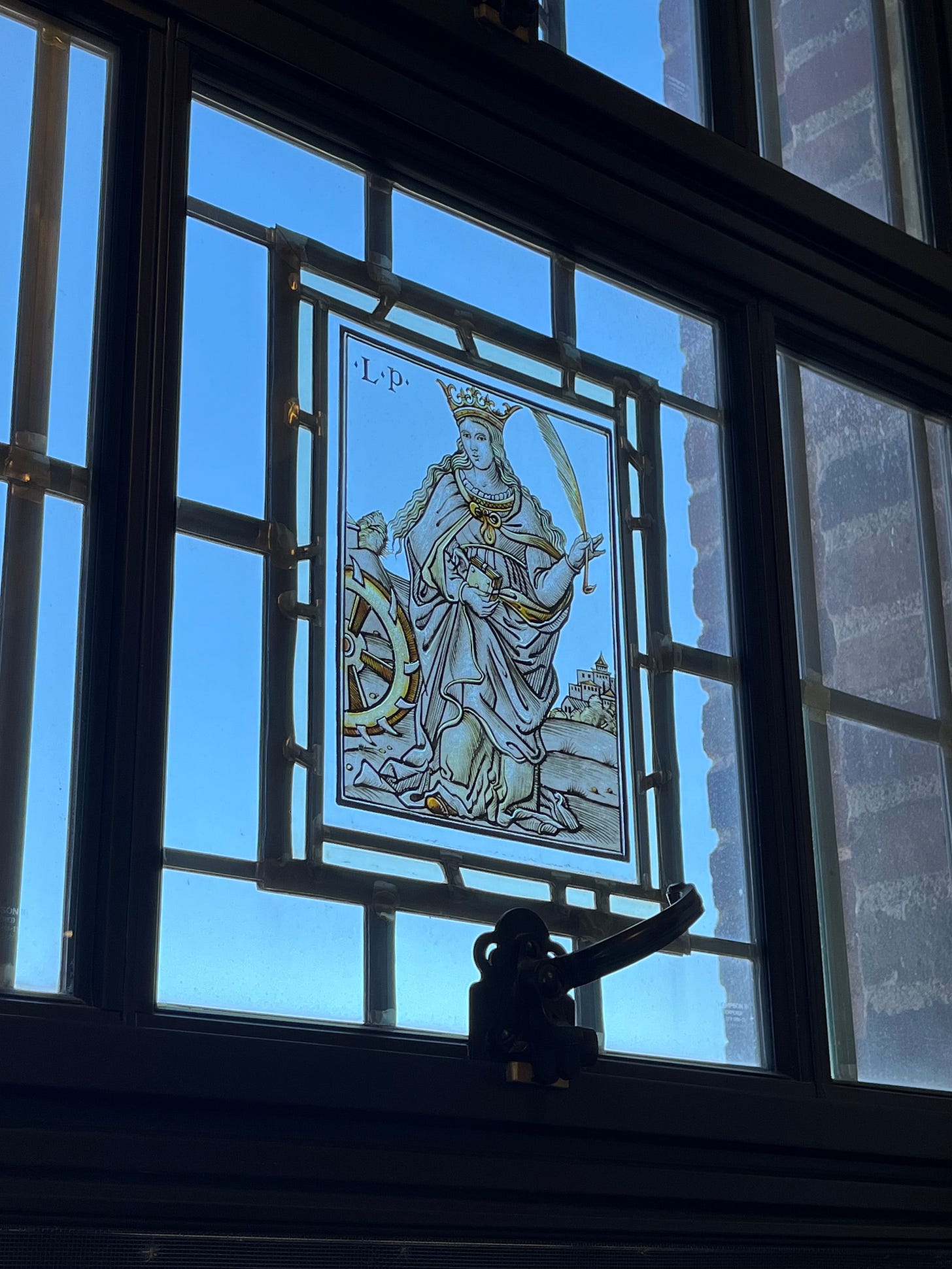New Haven, in the springtime, is painfully beautiful: the respite of a hug after a slap, these first green shoots poking their way up through the mulch. Only three weeks ago it was snowing and I was dragging my mother’s wedding dress through the streets to get to K’s Anna Karenina-themed birthday, teetering over snowplow-made slushbanks that would freeze, come morning, into hard blocks of ice. Too much snow on the high school field to play 8 AM soccer so we squeak across a basketball court with floors the color of honey, separated by a giant curtain from the ROTC students drilling and saluting in fatigues. One of the other players says, “I would be so bad at being in the military.”
I learn, in a packed town hall about immigration enforcement and our rights, that if ICE shows up on campus — to classrooms, libraries, dorms — we should ask if they have a warrant and tell them to GTFO. Despite this sensible advice I am scared of not being able to protect my students adequately, of not being able to do anything for my friends. I buy shit on the internet and walk back and forth like Eliot’s Prufrock women (“In the room the women come and go / Talking of Michelangelo”) and fail to turn my 80 open tabs into citations or new writing for my ambitiously titled “[draft] Dissertation” Google Doc.
The more time I spend in the PhD, the more I think about what it is we try to buy with all this time. In Jessica Dai’s “how to have a good time in a phd” I saw John D. Zhang’s “graduate school is just a metaphor” and its taxonomy of three types of grad students: career-chasers, monomaniacs who just really love their topic, and grifters here for the stipend and travel grants and free food. I joke all the time about the latter identity, bring my ziploc bags and tupperware to every event, brag about how amidst inflation and the Great American Egg Crisis I still get my two (2) hardboiled eggs at a free lunch each week.
Shockingly, I’m not at Yale for free eggs. If each of Zhang’s types includes an implicit objective — tenure-track professorship, the resources to study the thing you really love, a six-year deluge of falafel wraps — I would throw in a fourth, which is getting to live in a place like this. Not just New Haven but Berkeley or Cambridge or all the other places where you can live in a house with your friends, walk to soccer and see only one Trump flag, eat artisanal ice cream, see a lecture from some imported luminary every single day if you want to, where a bunch of people live because they want to think and read and write and teach. And sure universities aren’t the only or even the best places to do that but in their intense concentration of resources and infrastructure they are incredibly unique, elite universities particularly so.
I can’t believe I’m singing the praises of colleges and college towns. Yale’s fortune was made on the backs of enslaved people; today, it’s the largest landlord in New Haven but barely pays taxes (one instantiation of a nationwide problem of tax-exempt universities not contributing enough to their cities). The contemporary abundance that produces Hogwarts-like dining halls for 18-year-olds to ooh and ahh over is a direct result of dispossession and cruelty. In my ideal society there would be a massive democratization and expansion of education (free college, for starters) such that these places wouldn’t feel like such islands, their ill-gotten gains unequally distributed. But we live in something very far off from that ideal right now, one where Republicans have removed my discipline, sociology, from core curricula; taken over local school boards to destroy community colleges in Idaho; plan to destroy the Department of Education after first wielding it to hurt trans kids; and have revoked student visas and arrested an activist at Columbia University, threatening him with deportation, in a blatant act of retaliation for protest. All the uncertainty and fear about the Trump Administration’s sudden budget cuts has led to hiring freezes across numerous institutions (Harvard, Emory, Notre Dame, and University of Vermont, among others).
From international colleagues and grad students on the academic job market (and those who are both) I hear the same refrain, which is that they want to be able to stay, whether staying means in the U.S. and/or academia. I’m not saying that the worsening crapshoot of academic hiring is as bad as the threat of deportation — only that the common thread is that the Trump Administration and its allies really enjoy making their adversaries feel precarious, and making their adversaries materially precarious. By weakening higher education institutions they do both. Being a grad student is the closest thing to socialism I can get in America. Almost everyone I know makes the same amount of money as me; I complain about my healthcare but it’s always covered my ER bills; my rent is affordable. I don’t somehow deserve this and my leafy, walkable community because of being so special and so smart. I would like a Yale graduate student lifestyle for every person who wants it — minus the fear that this life will end in a few semesters, a breeze passing in spring.



